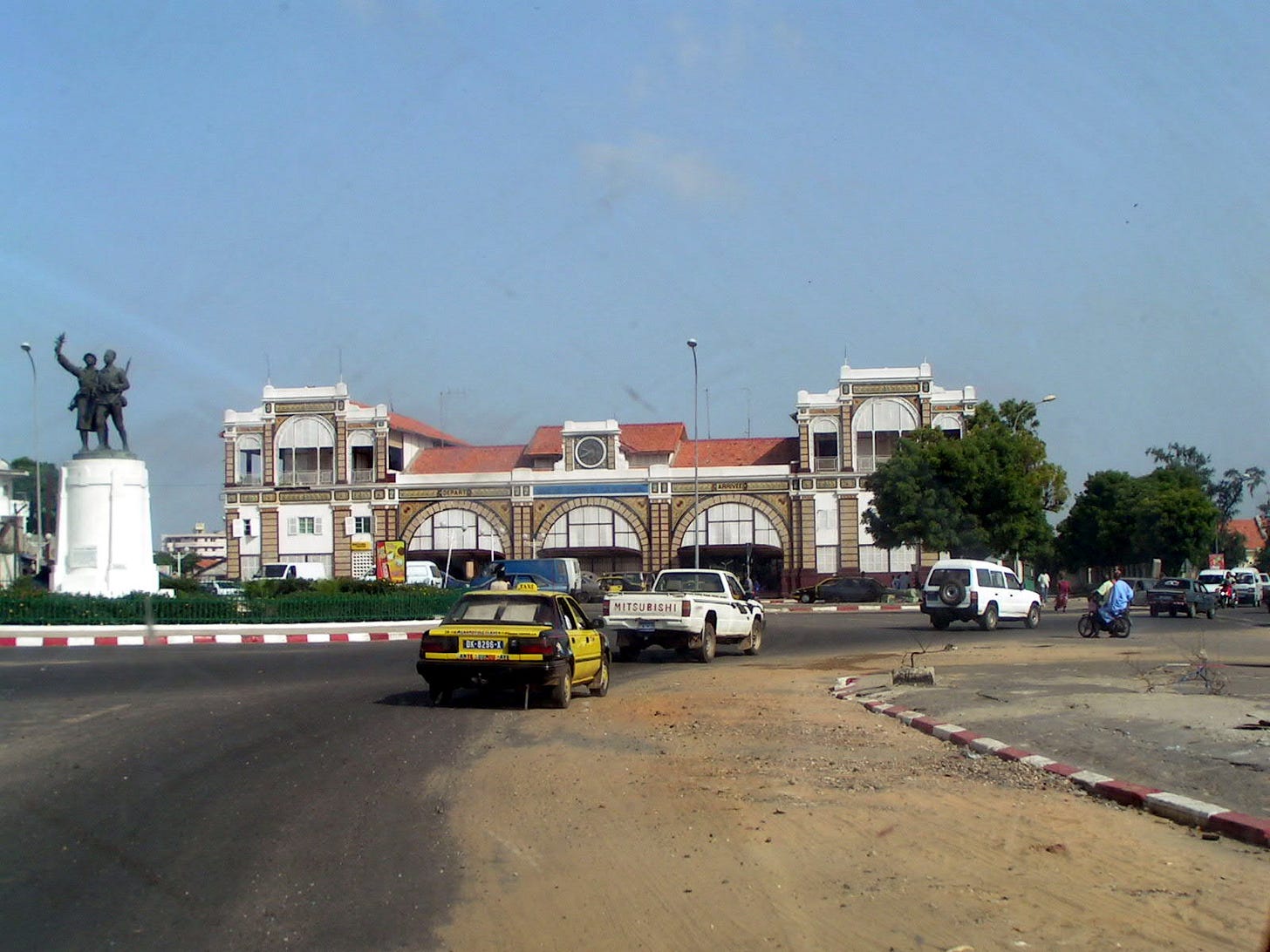🔅 From Twin Tales to Vaccine Victories
Nigeria's Contrasting Communities, East Africa's Railway Dreams, and Immunization's Impact
Photo of the Day
Spotlight Stories
Nigeria's Twin Tales: A Tale of Two Cities
In the land of Nigeria, where yams are yummy and okra reigns supreme, two communities have taken drastically different approaches to the question: "What do we do with twins?"
Igbo-Ora: The Town Where Twins Are Twice as Nice
Welcome to Igbo-Ora, the self-proclaimed capital of twins, where double the trouble means double the fun. In this small rural town, twins are popping out faster than you can say "Taiwo and Kehinde" (the predestined names for the older and younger twin, respectively).
The locals credit their twin-tastic fertility to a dish called "ilasa," made from okra leaves, which apparently makes women's ovaries go into overdrive. Others say it's all in the genes, with twin-producing families being the hottest commodity in the marriage market.
As a result, the traditional ruler, Oba Jimoh Olajide, has grand plans to put Igbo-Ora on the world map as the Guinness World Record holder for the highest multiple births.

Bassa-Komo: Where Twins Were Once a No-No
Meanwhile, in the Bassa-Komo community near Abuja, twins were once seen as a source of fear and mysteriously died at an alarming rate. Enter Nigerian missionary Olusola Stevens, who decided to investigate this twin-troversy in the mid-1990s.
Pastor Stevens discovered that some villagers believed twins were evil and would resort to questionable methods to ensure their demise. To change attitudes, he set up an orphanage. Thanks to the orphanage's outreach program and government awareness initiatives, many Bassa-Komo community members now keep their twins. Some, like Olufemi "Wonder Boy" Stevens, have even returned to their villages to prove that twins are not evil and to promote education as the key to progress.
While twins may never be as celebrated in Bassa-Komo as they are in Igbo-Ora, Pastor Stevens remains hopeful that one day his services will no longer be needed. Until then, Nigeria's twin tales serve as a reminder that when it comes to multiple births, it's all about perspective.
All Aboard the East African Express: $5.4 Billion Railway to Connect the Region

Get ready to choo-choo your way across East Africa's Northern Corridor! The region's countries are banding together hoping to extend the Standard Gauge Railway (SGR) from Kenya to Uganda, Rwanda, and South Sudan. But before you start packing your bags, there's just one small detail: they need $5.4 billion to make it happen.
Currently, Kenya's SGR runs from the coastal city of Mombasa to Naivasha, a town that's probably best known for its stunning lake and flamingo population.
But now, the plan is to link this railway to the Kenyan border town of Malaba and Uganda's capital, Kampala. From there, it'll extend its tracks to Rwanda and South Sudan, making it easier than ever to transport goods across the region.
This time, it is a joint effort:
In July 2023, Kenya and Uganda revived the near-dead project to build the SGR railway between them but failed to convince financiers the viability of the project.
And this time, Rwanda, Burundi, the Democratic Republic of Congo, and South Sudan have decided to join forces with Kenya and Uganda's SGR joint ministerial committee. Their mission is to mobilize the much-needed funds for this ambitious project, largely from development partners.
Once completed, this extended railway network will simplify the transportation of goods across the Northern Corridor, boosting trade and economic growth in the region.
So, if all goes according to plan, you might soon be able to hop on a train in Mombasa and find yourself in Juba, South Sudan, in no time. Just don't forget to bring snacks for the journey – it's going to be a long ride!
Vaccines Saved 51.2 Million Lives in Africa Over 50 Years
In a remarkable testament to the power of immunization, an estimated 51.2 million lives have been saved through vaccines in the African region over the past half-century.
A new report by the World Health Organization (WHO) finds that for every infant life saved during this period, close to 60 years of life are lived. These achievements have been made possible under the Expanded Programme on Immunization (EPI), a WHO initiative launched in 1974 to ensure equitable access to life-saving vaccines for every child, regardless of their geographic location or socioeconomic status.
The report highlights, amongst others, the impact of vaccines in reducing measles deaths, with an estimated 19.5 million deaths averted over the last 22 years. The region has also witnessed a sharp decline in meningitis deaths and the near-elimination of maternal and neonatal tetanus. In a historic public health achievement, the African region was declared free of indigenous wild poliovirus in 2022.
Despite the progress made, the region still faces challenges in achieving and sustaining high immunization coverage rates for most vaccine-preventable diseases. The disruptive impact of COVID-19 further strained immunization efforts, and the region is yet to fully recover from the pandemic's disruptions.
Food for Thought
“You cannot build a house for last year’s summer."
— Ethiopian Proverb







Hello Baobab. I did not know okra comes from Africa. I only knew it as a southern U.S. item. It is so neat how food, people, and language travel the world and intermingle.
Also, do we know if that impressive standard gauge railroad for East Africa is going to be elevated throughout? I am thinking about the terrible flooding affecting Kenya and Tanzania now and an elevated train throughout may not be a bad idea! As an aside, elevated train systems (trains on stilts) are a common feature in Chicago, Illinois, and locals call it the "el" train for "elevated"--so definitely a thing!
Thank you, as always, for curating the neat and quality photographs from African cities, people, and around the continent. That is my first eyeball view of Dakar, despite having heard the name regularly.